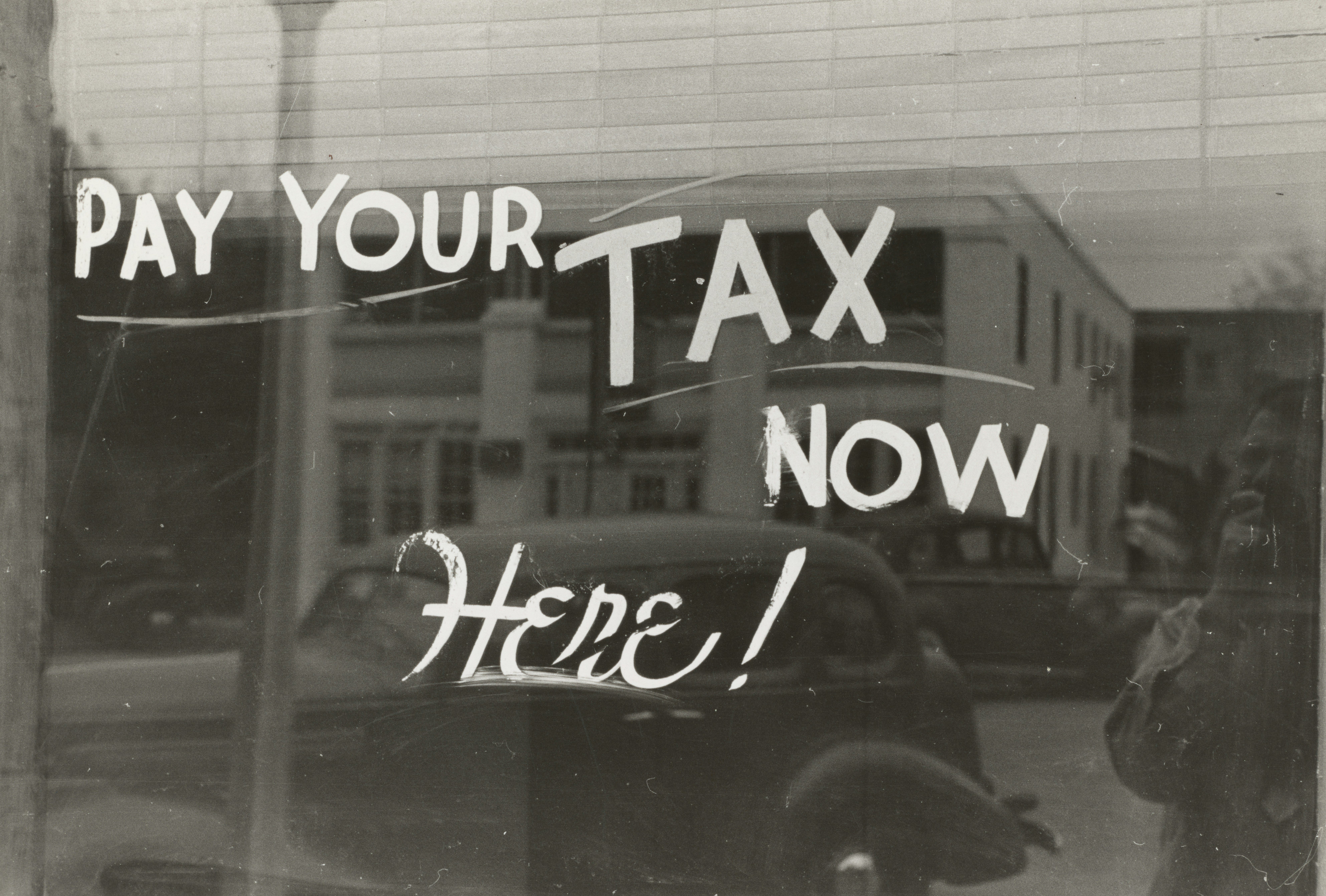If you’ve found yourself in the unfortunate situation of needing to hire a tax fraud lawyer, you know just how important it is to find someone reliable and trustworthy. With so much on the line, it can feel overwhelming to navigate the legal world and choose the right professional to represent you.
Fortunately, we’ve compiled a list of the top 5 tips to help you hire a reliable tax fraud lawyer who will fight for your rights and ensure the best possible outcome for your case. From checking credentials to assessing experience and reputation, these tips will guide you in making an informed decision and finding the right advocate to protect your interests.
1. Determine your needs and budget
Assess your specific tax fraud issue
The first step in hiring a reliable tax fraud lawyer is to assess your specific tax fraud issue. Take the time to understand the nature of your problem and determine the extent of legal assistance you require. Are you facing an audit from the IRS? Are you under investigation for tax evasion? Each tax fraud case is unique, and it’s important to have a clear understanding of your needs before proceeding.
Identify the level of expertise required
Once you have assessed your tax fraud issue, it’s crucial to identify the level of expertise required to handle your case. Tax fraud cases can be complex, involving intricate tax laws and regulations. Look for a lawyer who specializes in tax fraud defense and has a proven track record in handling similar cases. Their expertise and experience will greatly enhance your chances of achieving a favorable outcome.
Consider your budget constraints
It’s important to consider your budget constraints when hiring a tax fraud lawyer. Legal services can be costly, and tax fraud cases often require extensive time and resources. Determine the budget you are comfortable with and ensure that you find a lawyer who can accommodate your financial situation. There are lawyers who offer flexible payment plans or alternatives such as hourly rates or flat fees. Remember, finding a lawyer within your budget is essential to ensure a continuous and smooth legal process.
2. Research potential lawyers
Seek recommendations from trusted sources
To begin your search for a reliable tax fraud lawyer, it’s a good idea to seek recommendations from trusted sources. Reach out to friends, family members, or colleagues who have faced similar legal issues. They can provide valuable insights and recommendations based on their own experiences. Their recommendations can help you narrow down your options and find lawyers who have a proven track record of success in handling tax fraud cases.
Browse online directories of tax fraud lawyers
Another effective way to research potential lawyers is by browsing online directories that specialize in legal services. These directories provide comprehensive information about lawyers in your area, including their areas of expertise, qualifications, and contact information. Take the time to read through the profiles of various tax fraud lawyers to get a sense of their experience and qualifications. This will help you create a shortlist of lawyers who seem promising and align with your needs.
Check professional association websites for referrals
Professional associations such as the American Bar Association or state bar associations can be valuable resources when searching for a tax fraud lawyer. These organizations often have referral services that connect individuals with qualified lawyers in their area. By utilizing these services, you can ensure that the lawyers you consider are licensed and in good standing with the legal community. This can provide an additional layer of confidence in their abilities and professionalism.

3. Evaluate the lawyer’s qualifications
Verify their education and credentials
One of the most crucial steps in evaluating a tax fraud lawyer is verifying their education and credentials. A reputable lawyer will have earned a law degree from an accredited law school and should be licensed to practice in your jurisdiction. Take the time to research their educational background and verify their credentials through relevant licensing bodies. This will ensure that you are working with a qualified professional who has met the necessary standards of the legal profession.
Consider their experience in tax fraud cases
Experience is paramount when it comes to choosing a tax fraud lawyer. You want to work with someone who has successfully handled tax fraud cases in the past and has a thorough understanding of the complexities involved. Look for lawyers who have a substantial amount of experience in tax fraud defense and who have a track record of achieving favorable outcomes for their clients. An experienced lawyer will be well-versed in the intricacies of tax law and will know how to navigate the legal system effectively.
Check if they have relevant certifications or memberships
In addition to education and experience, it’s important to check if the tax fraud lawyer has any relevant certifications or memberships in professional organizations. Certifications such as the Certified Tax Specialist designation can indicate a lawyer’s expertise and dedication to their field. Similarly, memberships in organizations like the American College of Tax Counsel or the Tax Section of the American Bar Association can demonstrate a lawyer’s commitment to ongoing professional development and staying up to date with the latest developments in tax law.
4. Review the lawyer’s reputation and track record
Read online reviews and testimonials
Before making a decision, it’s important to review the tax fraud lawyer’s reputation and track record. One way to do this is by reading online reviews and testimonials from previous clients. These reviews can provide valuable insights into the lawyer’s professional demeanor, communication style, and success rate. Keep in mind that no lawyer can guarantee a specific outcome, but a lawyer with consistent positive reviews is likely to have a strong track record of client satisfaction.
Look for any disciplinary actions or complaints
While researching a potential tax fraud lawyer, it’s essential to check if they have been subject to any disciplinary actions or complaints. This information can usually be found on the website of the licensing or disciplinary authority in your jurisdiction. Disciplinary actions or complaints may indicate unethical behavior or subpar legal representation. If you come across any red flags in this regard, it’s advisable to explore other options to ensure you are working with a lawyer who maintains the highest standards of professionalism.
Ask for references from previous clients
To gain further insight into a tax fraud lawyer’s reputation and track record, consider asking for references from previous clients. Speaking directly with individuals who have worked with the lawyer can provide valuable firsthand information about their experience and the outcomes of their cases. This can help you gauge the lawyer’s effectiveness, reliability, and compatibility with your specific needs. Don’t be hesitant to reach out and ask for references – a reputable lawyer will be happy to provide them.

5. Schedule initial consultations
Prepare a list of questions to ask during the consultation
Once you have narrowed down your list of potential tax fraud lawyers, it’s time to schedule initial consultations. These consultations offer an opportunity to discuss your case, ask questions, and assess the lawyer’s suitability for your needs. It’s a good idea to prepare a list of questions in advance to ensure that you cover all your concerns and get the information you need. Questions might include inquiries about the lawyer’s experience, success rate, and strategy for handling your specific case.
Discuss fees and payment terms upfront
During the initial consultation, it’s important to discuss fees and payment terms upfront. Transparency in financial matters is essential to avoid any misunderstandings or surprises down the line. Ask the lawyer about their fee structure, whether they charge on an hourly basis or have a flat fee arrangement. Additionally, inquire about any payment plans or potential additional expenses that may arise during the course of your case. Understanding the financial aspects of your engagement with a tax fraud lawyer is crucial to make an informed decision.
Assess their communication style and responsiveness
Another important aspect to evaluate during the initial consultation is the tax fraud lawyer’s communication style and responsiveness. Effective communication is vital for a successful lawyer-client relationship. Pay attention to how attentive and responsive the lawyer is during your meeting. Do they actively listen to your concerns? Do they explain legal concepts in a way that is easy to understand? Assessing their communication style and responsiveness will help determine whether they are accessible and available to support you throughout your legal process.
6. Assess the lawyer’s strategy for handling your case
Inquire about their approach to tax fraud defense
As you engage in discussions with potential tax fraud lawyers, make sure to inquire about their approach to tax fraud defense. Understanding their strategy and approach will give you insight into how they will handle your case and the steps they plan to take to achieve the best possible outcome. A strong tax fraud defense strategy may involve thorough investigation, negotiation, or litigation. Ensure that the lawyer’s approach aligns with your goals and expectations for your case.
Evaluate their knowledge of relevant tax laws
A competent tax fraud lawyer should have a deep understanding of relevant tax laws and regulations. Inquire about their knowledge in this area and gauge their ability to interpret and apply complex tax laws to your case. An attorney who is well-versed in tax legislation and has a comprehensive understanding of the legal nuances can build a compelling defense that takes advantage of any legal loopholes or inconsistencies. Evaluating their knowledge of tax laws will help ensure that you are receiving expert legal advice and representation.
Discuss potential strategies and options
While discussing your case with potential tax fraud lawyers, take the opportunity to discuss potential strategies and options. A skilled lawyer will present you with various alternatives and their respective benefits and risks. They should be able to provide you with a clear understanding of the potential outcomes of each strategy and help you make informed decisions. Discussing potential strategies and options will demonstrate the lawyer’s analytical skills and ability to craft a customized approach tailored to your unique circumstances.

7. Consider the lawyer’s availability and workload
Ask about their caseload and availability
It’s essential to consider the tax fraud lawyer’s availability and workload when making your decision. Inquire about their caseload and ask how many active cases they are currently handling. You want to ensure that the lawyer has sufficient time and resources to dedicate to your case so that it receives the attention it deserves. A lawyer with an overwhelming caseload might struggle to provide the necessary focus and diligent representation. Confirm that the lawyer has the capacity to handle your case effectively.
Ensure they have sufficient time to dedicate to your case
In addition to the lawyer’s caseload, consider whether they have sufficient time to dedicate to your case specifically. A lawyer who is too busy or stretched thin may not be able to dedicate the necessary time and attention to your tax fraud matter. During the initial consultation, discuss your expectations regarding communication and updates, and confirm that the lawyer can meet these expectations. Clear communication and regular updates are vital to ensure that you remain informed and involved throughout the legal process.
Evaluate if they have the necessary resources and support
Another consideration when assessing a tax fraud lawyer’s availability is evaluating if they have the necessary resources and support to handle your case efficiently. Tax fraud cases often require extensive preparation, research, and analysis. Ask about the team they have in place to assist with your case and how they plan to leverage their resources effectively. Having adequate support can contribute to a smooth and successful resolution of your tax fraud matter.
8. Discuss the potential costs and fees
Inquire about their billing structure
During the initial consultation, it’s important to inquire about the tax fraud lawyer’s billing structure. Ask whether they charge an hourly rate or have a flat fee arrangement. Understanding how they bill for their services will help you make an informed decision and avoid any surprises when it comes to payment. Additionally, discuss whether they require a retainer or if they offer any payment plans or financing options to accommodate your budget.
Ask for an estimate of the total costs involved
In addition to understanding the billing structure, it’s crucial to ask for an estimate of the total costs involved in handling your tax fraud case. While it can be challenging to provide an exact figure, an experienced lawyer should be able to provide a reasonable estimate based on their assessment of the complexity and potential duration of your case. Obtaining an estimate will help you plan and budget accordingly, allowing you to make informed financial decisions throughout the legal process.
Understand any additional fees or expenses
In addition to understanding the potential costs, it’s important to clearly understand any additional fees or expenses that may arise during the course of your case. These can include court filing fees, expert witness fees, or fees for specific services such as forensic accounting or investigations. Discussing these potential additional fees upfront will help you avoid any unexpected financial burdens down the line and ensure that you are fully informed about all possible expenses.
9. Trust your instincts
Consider your level of comfort and trust with the lawyer
Trusting your instincts is a significant factor when hiring a tax fraud lawyer. Consider your level of comfort and trust with the lawyer you are considering. Communication should be open and transparent, and you should feel confident in their abilities and professionalism. A strong lawyer-client relationship is essential for a successful outcome, as you will be working closely together throughout the legal process. Trust your gut feeling, and if you have any doubts or concerns, it may be wise to explore other options.
Evaluate their professionalism and demeanor
During your interactions with potential tax fraud lawyers, evaluate their professionalism and demeanor. Professionalism encompasses traits such as punctuality, responsiveness, and preparedness. A reliable and professional lawyer should treat you with respect, actively listen to your concerns, and provide clear explanations of legal concepts. Assess their demeanor and whether you feel comfortable discussing the details of your case with them. Remember, hiring a tax fraud lawyer is a significant decision, and it’s important to feel confident in their abilities and professionalism.
Listen to your gut feeling before making a decision
Ultimately, when making a decision about hiring a tax fraud lawyer, it’s essential to listen to your gut feeling. Consider all the information you have gathered throughout your research and initial consultations, but also trust your intuition. If something feels off or if you have any reservations, it’s important to acknowledge those feelings and explore other options. Hiring a lawyer is a personal choice, and feeling confident and comfortable with your decision will allow you to approach your case with peace of mind.
10. Obtain a written agreement
Ensure all terms, fees, and services are clearly stated
Once you have chosen a tax fraud lawyer and are ready to move forward, it’s crucial to obtain a written agreement that clearly states all the terms, fees, and services. This agreement should outline the scope of representation, the lawyer’s responsibilities, and the services they will provide. It should also clearly state the fee structure, including any retainer fees, hourly rates, or flat fees. Having everything in writing ensures that both parties are on the same page and protects your interests and rights as a client.
Review the agreement carefully before signing
Before signing the written agreement, take the time to review it carefully. Read through the document thoroughly and make sure you understand all the terms and conditions. If there are any ambiguities or unclear provisions, seek clarification from the lawyer before signing. It’s important to ensure that you are comfortable with all the provisions and that the agreement accurately reflects your understanding of the engagement with the tax fraud lawyer.
Seek clarification on any ambiguous clauses
If you come across any ambiguous clauses or provisions in the written agreement, don’t hesitate to seek clarification from the tax fraud lawyer. It’s essential to have a clear understanding of all the terms and conditions before entering into the agreement. Seek clarification on any unclear language or any provisions that seem confusing or open to interpretation. A reliable lawyer will be more than willing to address any concerns or questions you may have to ensure that you feel comfortable and informed before signing the agreement.
In conclusion, hiring a reliable tax fraud lawyer requires careful consideration and research. By following these ten tips, you can navigate the process effectively and find a lawyer who has the expertise, qualifications, and reputation to handle your tax fraud case. Remember to assess your specific needs and budget, thoroughly research potential lawyers, evaluate their qualifications and reputation, schedule initial consultations, and ensure clear communication regarding costs and fees. Trust your instincts and obtain a written agreement that clearly outlines all the terms and conditions. With thorough preparation and a well-informed decision, you can find a reliable tax fraud lawyer who will advocate on your behalf and help you achieve the best possible outcome.

